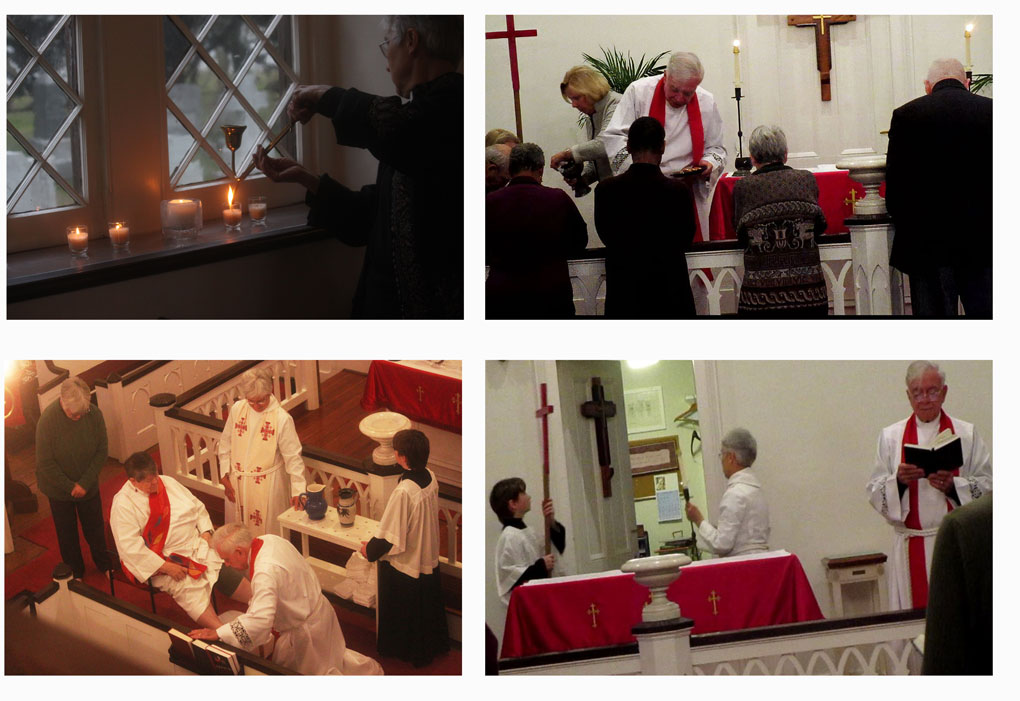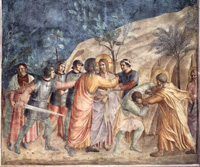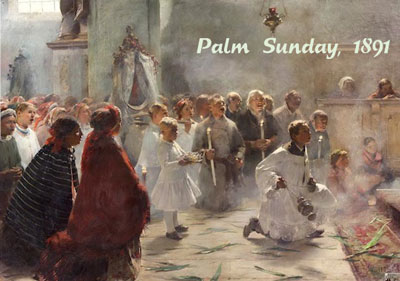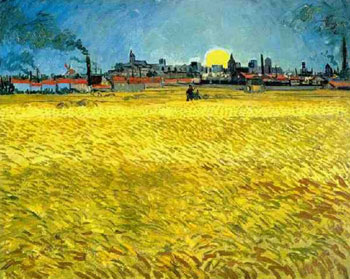Lectionary, Palm Sunday
I.Theme – "Strength is concealed in humility, pain is hidden in triumph, victory, in defeat, life, in death, God, in human form" -Diedrik Nelson
"Palm Sunday" – Giotto (1305-06) "Betrayal & Arrest of Christ" – Fra Angelico (1450)
The lectionary readings are here or individually:
Old Testament – Isaiah 50:4-9a
Psalm – Psalm 31:9-16 Page 623, BCP
Epistle –Philippians 2:5-11
Gospel – Mark 14:1-15:47
"Borg and Crossan (The Last Week: What the Gospels Really Teach About Jesus’s Final Days in Jerusalem) imagine not one but two political processions entering Jerusalem that Friday morning in the spring of AD 30. In a bold parody of imperial politics, king Jesus descended the Mount of Olives into Jerusalem from the east in fulfillment of Zechariah’s ancient prophecy: "Look, your king is coming to you, gentle and riding on a donkey, on a colt, the foal of a donkey" (Matthew 21:5 = Zechariah 9:9). From the west, the Roman governor Pilate entered Jerusalem with all the pomp of state power. Pilate’s brigades showcased Rome’s military might, power and glory. Jesus’ triumphal entry, by stark contrast, was an anti-imperial and anti-triumphal "counter-procession" of peasants that proclaimed an alternate and subversive community that for three years he had called "the kingdom of God."
This week has two liturgies – Liturgy of the Palms and Liturgy of the Passon.
"The church is called to reckon with paradox on this week: triumph and rejection, death and rebirth." So writes Melinda Quivik in Working Preacher. The week begins with Jesus triumphant arrival and by the end of the week he is killed. Next week we trace the path day by day. God is sacrificed by those he brings life.
"Strength is concealed in humility, pain is hidden in triumph, victory, in defeat, life, in death, God, in human form" -Diedrik Nelson
The theme is established by the first lesson. The servant is disciplined by suffering so he may bring strength and refreshment to the oppressed, but there are those who oppose him. Willingly he submits to those who torture and humiliate him. But God is his helper, so he is not disgraced or shamed. God vindicates him, no one can convict him.
The servant willingly suffers humiliation at the hands of his adversaries. He is not disgraced or put to shame because Yahweh vindicates him and helps him; no one can declare him guilty.
The servant of the Lord is opposed (Isaiah), is obedient to death (Philippians). He is betrayed, tortured and crucified by those who should have listened to him, and is recognized as Son of God by a centurion (Matthew). He will be vindicated (Isaiah), exalted by God (Philippians), and honored by the unexpected (Matthew).
The Passion story in Mark can be broken down in the following scenes:
The Passion story in Mark can be broken down in the following scenes:
1. Mark 14:1-11 extravagant love
2. Mark 14:12-21 passover preparation
3. Mark 14:22-25 Jesus’ last supper
4. Mark 14:26-42 agony in the garden
5. Mark 14:43-52 Jesus’ arrest
6. Mark 14:53-72 Jesus’ trial, Peter’s denial
7. Mark 15:1-20 Jesus before Pilate
8. Mark 15:21-32 Jesus crucified
9. Mark 15:33-41 Jesus’ death
10. Mark 15:42-47 Jesus’ burial
Read more








